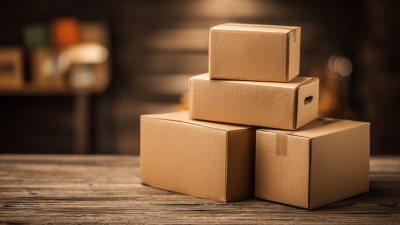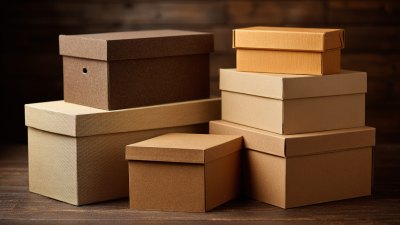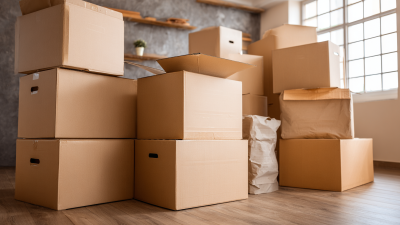What is Bulk Boxes and How They Can Transform Your Packaging Solutions
In recent years, the packaging industry has seen a significant transformation, with bulk boxes emerging as a pivotal solution that addresses the needs of modern logistics and distribution. According to a report by the Freedonia Group, the demand for bulk boxes is projected to grow at a compound annual growth rate (CAGR) of 5.5% through 2025, driven by their efficiency in reducing transportation costs and their ability to streamline the supply chain. Experts in the field, such as Michael Turner, a leading packaging analyst at Smithers Pira, emphasize the advantages of bulk boxes, stating, "Bulk boxes not only enhance the sustainability of packaging practices but also provide businesses with significant cost savings by maximizing space and reducing waste."
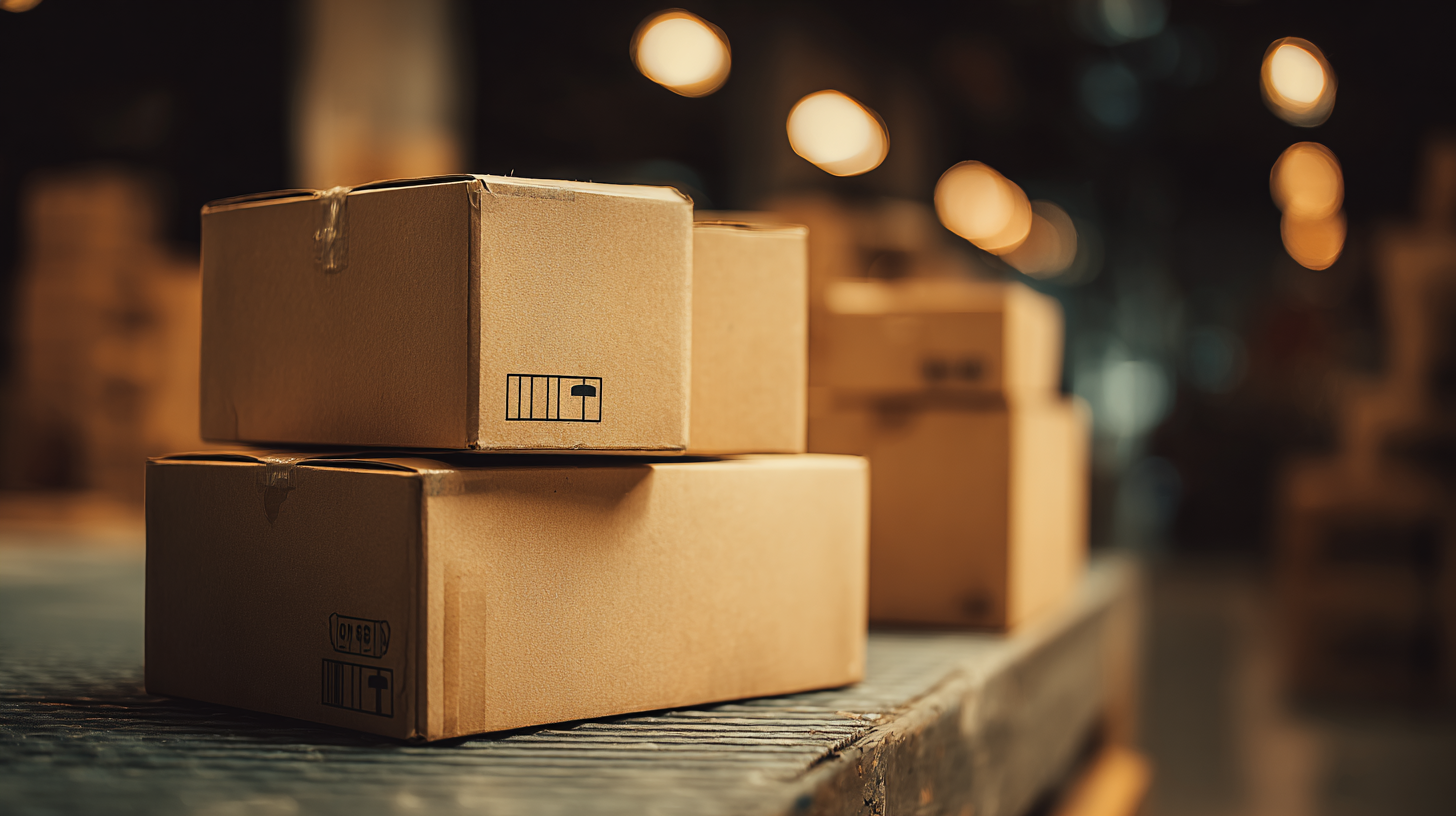
Furthermore, the versatility of bulk boxes makes them an attractive option for various industries, including food and beverage, pharmaceuticals, and consumer goods. These large-scale packaging solutions cater to the rising demand for eco-friendly options, as they can often be reused or recycled, which aligns with global sustainability goals. With manufacturers consistently adapting to the ever-changing market dynamics, it is clear that the integration of bulk boxes into packaging strategies can be a transformative move for companies aiming to optimize their operations while also being environmentally conscious.
Understanding the Concept of Bulk Boxes: A Comprehensive Overview
Bulk boxes are essential packaging solutions designed for the efficient storage and transport of large quantities of goods. These boxes, typically made from robust materials like corrugated cardboard, provide a reliable method for businesses to streamline their logistics. Understanding the concept of bulk boxes can significantly enhance your packaging strategy, reducing costs and minimizing waste.
When considering the use of bulk boxes, it's crucial to assess your product dimensions and weight to select the right size and strength. Additionally, optimizing the filling process can lead to improved space utilization, which ultimately lowers shipping expenses.
**Tips:** 1) Always ensure that bulk boxes are appropriately labeled for easy identification during transportation. 2) Consider using eco-friendly materials for bulk boxes as they can appeal to environmentally-conscious consumers and enhance your brand image. 3) Implement a standardized packing method to maintain consistency and efficiency in packaging operations.
Packaging Efficiency of Bulk Boxes vs. Traditional Packaging
Key Advantages of Using Bulk Boxes in Packaging Solutions
Bulk boxes are becoming an essential component in modern packaging solutions, offering several significant advantages that can transform the way businesses operate. One of the key benefits is their efficiency in storage and transportation. Bulk boxes are designed to optimize space, allowing businesses to reduce the number of trips needed for shipping and lower warehouse storage costs. Their sturdy construction ensures that products are securely packed, minimizing damage during transit and thereby reducing losses associated with damaged goods.
Another advantage of bulk boxes is their environmental sustainability. Typically made from recyclable materials, bulk boxes contribute to a reduction in waste. Companies can enhance their eco-friendly practices by utilizing these boxes, appealing to environmentally conscious consumers. Furthermore, bulk packaging can streamline the packing process, as items can be conveniently stacked and organized, leading to faster assembly lines and improved productivity. This combination of efficiency and sustainability makes bulk boxes a smart choice for businesses looking to innovate their packaging solutions.
Innovative Designs in Bulk Box Packaging: Meeting Diverse Needs
The packaging industry is witnessing a significant transformation with the advent of innovative designs in bulk box packaging. According to a recent report by Smithers Pira, the global market for corrugated packaging is expected to reach $300 billion by 2026, driven by the increasing demand for sustainable and efficient packaging solutions. Bulk boxes, characterized by their rigid structure and larger capacity, are becoming increasingly popular in industries ranging from food and beverage to electronics. They not only provide excellent protection for goods during transit but also optimize space, reducing shipping costs.
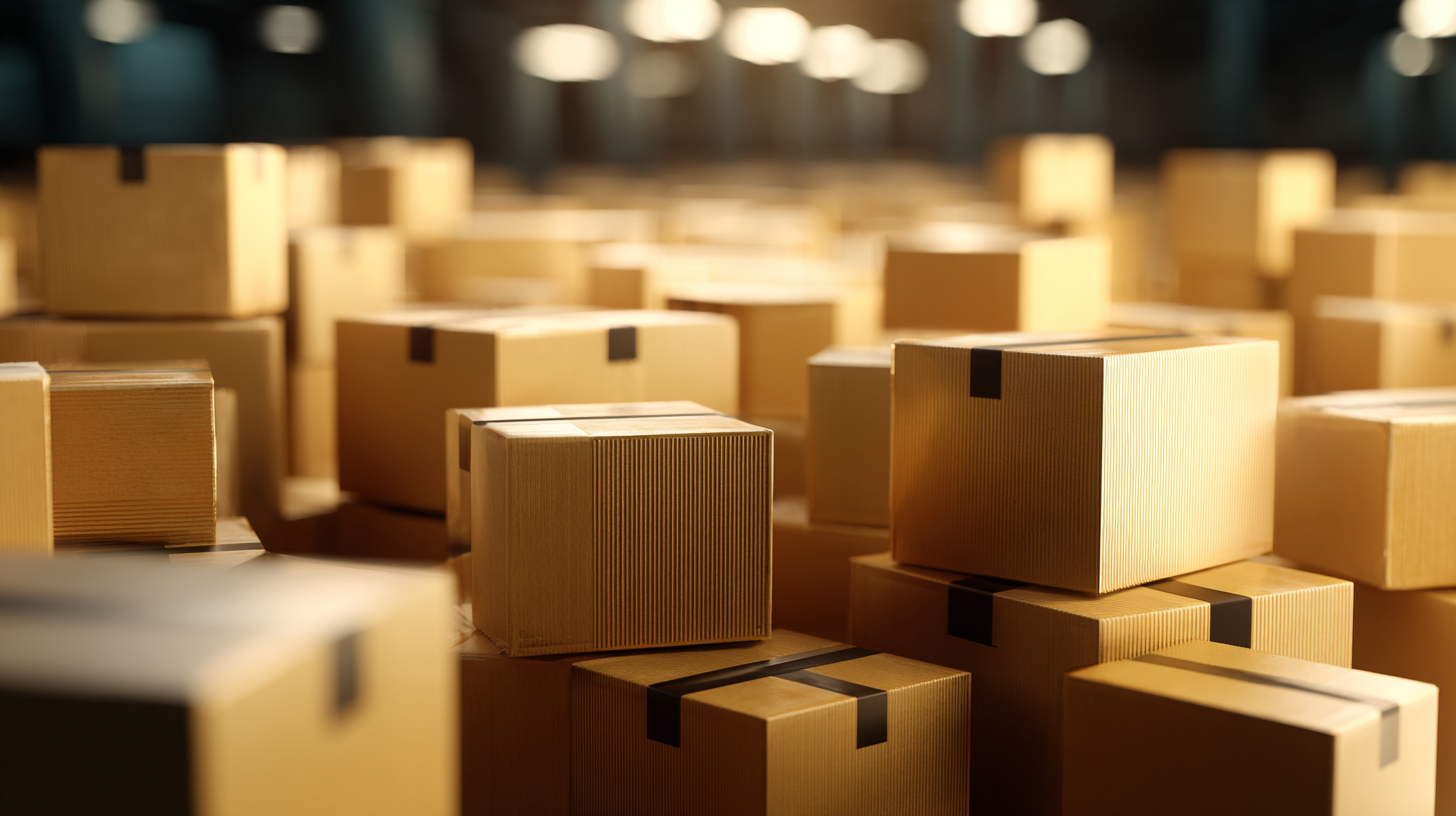
As businesses strive to meet diverse needs, custom bulk box designs are emerging as a strategic advantage. For instance, a study by Freedonia Group highlights that the flexible packaging market is projected to grow by 5.5% annually, emphasizing the need for materials that can adapt to a variety of product shapes and sizes. Innovations such as modular boxes that can be easily assembled and disassembled allow companies to respond quickly to changing demands. Furthermore, advancements in eco-friendly materials are enabling bulk box manufacturers to cater to growing consumer preferences for sustainable practices, aligning with Circular Economy principles. These developments not only enhance operational efficiency but also reflect a commitment to environmentally conscious solutions, paving the way for a more sustainable future in packaging.
Cost-Efficiency and Sustainability: The Economic Impact of Bulk Boxes
Bulk boxes represent a revolutionary shift in how businesses approach packaging. By offering a larger capacity for storage and transport, they significantly reduce the number of boxes needed for shipping and minimize material usage. This consolidation not only leads to a streamlined supply chain but also results in substantial cost savings. Companies can take advantage of bulk boxes to optimize their logistics, leading to reduced shipping costs per unit and enhanced efficiency in inventory management.
 From an environmental perspective, bulk boxes are a game-changer. Their reusable nature encourages sustainable practices, reducing the waste generated from single-use packaging. By transitioning to bulk solutions, companies can significantly lower their overall carbon footprint. Moreover, with the increased focus on sustainability from consumers and regulatory bodies alike, adopting bulk packaging can position businesses as leaders in eco-friendly practices, ultimately enhancing their brand reputation and competitiveness in an increasingly conscientious market.
From an environmental perspective, bulk boxes are a game-changer. Their reusable nature encourages sustainable practices, reducing the waste generated from single-use packaging. By transitioning to bulk solutions, companies can significantly lower their overall carbon footprint. Moreover, with the increased focus on sustainability from consumers and regulatory bodies alike, adopting bulk packaging can position businesses as leaders in eco-friendly practices, ultimately enhancing their brand reputation and competitiveness in an increasingly conscientious market.
Future Trends in Bulk Box Packaging: What to Expect in the Industry
In the evolving landscape of packaging solutions, bulk boxes are becoming increasingly significant due to their efficiency and sustainability. As industries shift towards more eco-friendly practices, the demand for reusable and recyclable packaging is expected to rise. Future trends suggest that bulk boxes will incorporate innovative materials that minimize environmental impact, such as biodegradable composites and advanced, lightweight designs, enhancing both functionality and sustainability.
Furthermore, technology is playing a pivotal role in the future of bulk box packaging. The integration of smart technologies, such as RFID tags and IoT sensors, will transform how businesses track and manage their inventory. This not only optimizes supply chain logistics but also reduces waste and improves resource management. As companies become more data-driven, we can anticipate personalized bulk box solutions tailored to specific product needs, paving the way for more efficient and responsive packaging strategies in the industry.
What is Bulk Boxes and How They Can Transform Your Packaging Solutions
| Dimension | Description | Future Trend |
|---|---|---|
| Material Type | Eco-friendly materials, recyclable options | Increased demand for sustainable packaging |
| Customization Options | Size, shape, and design variations | Rise in personalized packaging solutions |
| Market Adoption | Widespread across various industries | Higher adoption rates in e-commerce sectors |
| Technological Integration | Use of automation in production | Increased efficiency and reduced costs |
| Weight & Durability | Lightweight yet strong structures | Focus on optimizing strength-to-weight ratios |
